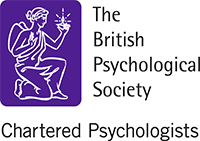Nature or Nurture?
Posted: 23/07/2014If you experience persistent anxiety or depression, its easy to feel that there is something fundamentally, innately wrong with you – hard wired into your nature. Its been known some time that the presence of a particular form of a gene (called the 5-HTTLPR) is associated with a range of mental health problems, but the mechanism of the link has been unclear. Recent research now suggests that this form of the gene may signal greater emotional sensitivity rather than anything inevitably problematic. The ‘Differential Susceptibility Model’ (Belsky & Pluess, 2009; 2010) proposes some individuals are more sensitive or ‘susceptible’ to their interpersonal context than others, particularly in childhood. The idea here is that with very good parenting (and an absence of any abuse) people with this form of the gene do extremely well in life, however, they struggle more than others if mistreated (see footnote for details). Interestingly, individuals with the sensitive version of the gene have more pulvinar neurons (Young et al, 2007). These neurons are involved in the processing of visual signals and maybe associated with a greater capacity to detect the emotional context of our environment, making the individual more emotionally sensitive. Pulling it together, it maybe that some of us need more from our interpersonal environment in childhood than others but, as adults, when we learn to seek this out and understand our sensitivity we can thrive.
Another hopeful finding is that recovery from psychological problems in therapy is associated with measurable changes at a structural and functional level in the brain. A raft of studies using functional MRI show that the brains of patients suffering from mental health problems look and behave differently from controls (those similar in other ways but without mental health problems). However, after successful therapy they are anatomically and functionally indistinguishable. Our brains appear to be highly ‘plastic’ even in adulthood, changing as a result of interpersonal and other significant experiences, including therapy. Personally, I like to image people’s neurons firing and connecting in therapy, changing the old patterns linked to fear and loss and creating new ones which combine sensitivity with a new found confidence and flexibility.
Foot Note
In a study on Macaque Monkeys (Suomi, 1997), baby monkeys with the ‘sensitive’ form of the gene raised by parents with exceptional parenting skills had much better developmental trajectories and adult functioning than all other groups. However, when raised by parents with poor parenting skills they struggled much more than their less sensitive peers. Monkeys with less sensitive versions of the gene were much less effected by the quality of parenting. In line with these findings, a study of university students (Antypa & Van der Does, 2010), showed that childhood emotional abuse (measured retrospectively) appeared to have a much greater impact on adult depressive thinking for students with the more sensitive form of the gene. However, with low/absent levels of childhood emotional abuse, the sensitive group showed very healthy thinking styles. Students with the least sensitive version of the gene scored moderately, irrespective of the level of abuse reported.
By Dr Gill Heath, Become Psychology


